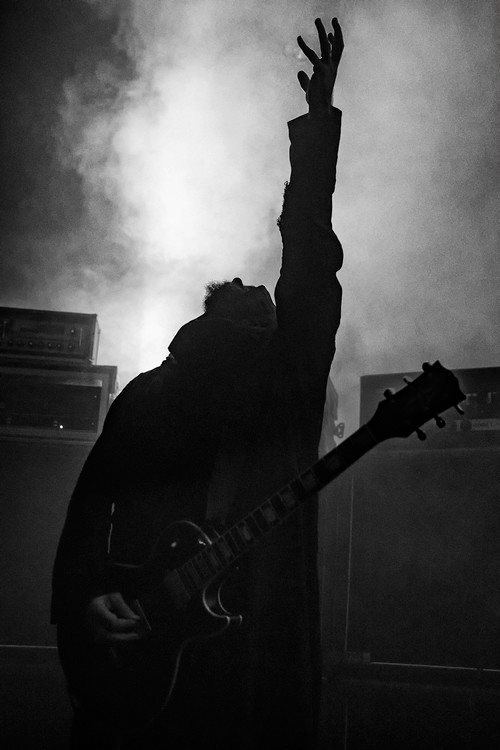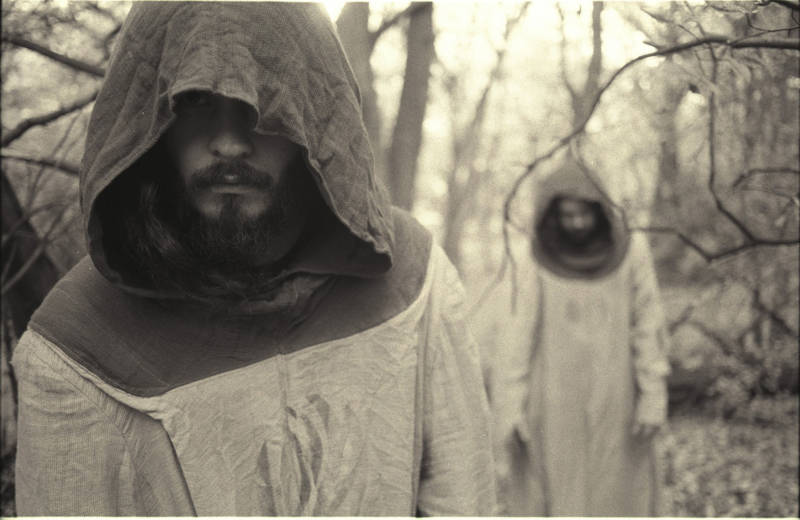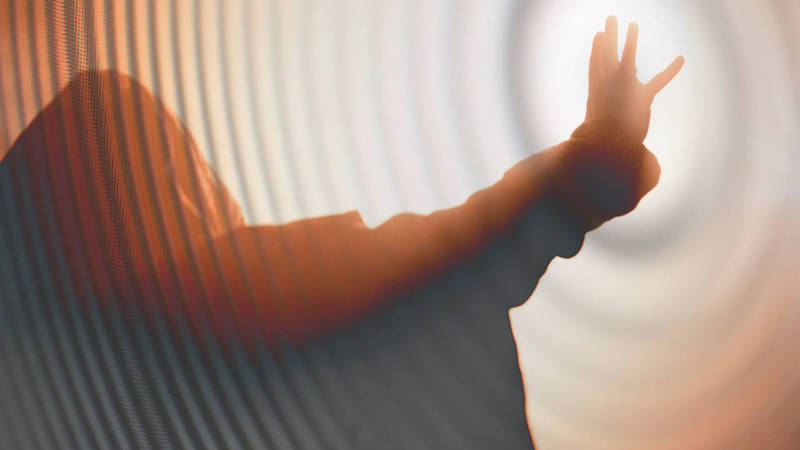There’s something transformative about a band whose music gets into your bones. I’m not talking metaphorically; I’m talking about the artists who, through sheer maximization of volume, distortion, tone, and amplified force, summon a physicality in a live setting that infects listeners like no record could.
These are the shows I remember most, the ones where I was bodily shaken by sound. My Bloody Valentine at the Concourse was one such event: I stumbled out of the venue with a friend whose stomach nearly revolted during the monstrous 20-minute distortion pile-up they called an encore. Outside, fans sucked in air like we’d disembarked from a sail into a white squall, and the inside of my ears tickled for the next 24 hours. Or Butthole Surfers at the Fillmore, a concert that ended in a feedback coda I felt in my fillings.

These were just the finales of notoriously loud bands, though. For Seattle drone masters and metal minimalists Sunn O))), the entire performance is meant to inhabit you. There’s no build toward a climaxing god rattle. From the time the Marshall stacks buzz alive, Sunn O)))’s deafening dirges carry crowds to altered states. Their revelatory shows provoke such rhapsodic Twitter testimonials as “Still buzzed from #drone therapy last nt w/SUNN O))) … EPIC” and “I’m pretty sure my soul left my body and transcended through space and time when Sunn O))) played.”
The members of Sunn O))) emphasize these gravitational spells with calculated wizardry. Not only do they dress in hooded robes, erect walls of amps, and flood the room with fog when they play, they use words like “bass bombs” to describe the low-end tones they’re seeking from collaborator Oren Ambarachi’s guitar, as Ambarachi told The Wire. He added that working with Sunn O))) masterminds Stephen O’Malley and Greg Anderson taught him a lot about “sound pressure, resonance and feedback, and how pleasurable it can be to bathe in physical soundwaves.”
Soaking in sound for its physical properties is nothing new, of course. Healers tout the benefits of ancient Tibetan metal singing bowls, claiming that they evoke a deep sense of relaxation in the listener. (In 2013, The Dr. Oz Show aired a segment with New York oncologist Dr. Mitchell Gainor focused on the bowls’ mood-shifting properties.) Scientific studies have shown the benefits of whole-body vibration in children and senior citizens alike; fitness machines that emit strong sound waves have even turned up as a commercial product. And no trip to Joshua Tree is complete without an appointment at the nearby alien beacon-turned-roadside attraction The Integratron to get healed (or high) from the reverberations of quartz crystal bowls, whose siren songs feel like they’re originating inside your body.

Although there’s a zen throughline in the subconscious states tapped into by both doom-metal bands and crystal bowl charmers alike, Sunn O)))’s ruminative properties aren’t sedative, or even spiritual. In an interview with Rolling Stone last December to discuss the release of the band’s first studio record in six years — Kannon, an excellent three-song opus of surround sludge and reptilian chants (the latter from Hungarian buddy of the band, Mayhem frontman Attila Csihar) — O’Malley remarked that although Kannon was named for a Buddhist goddess of mercy, the band isn’t religious. Instead, they’re devout about the meditative properties of playing music that’s “this real intense massive amount of energy and sound.” When Sunn O))) plays Kannon live, he says, the experience is “ecstatic.”


